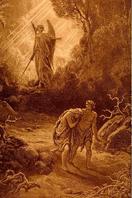
The word itself literally means “at-one-ment” and is about being at harmony or equal with someone. Christianity and Judaism are based on the idea that the relationship between God and Man is broken - this is seen in the Genesis 2-3 narrative when Adam and Eve sin against God by eating from the tree and so Fall from God’s presence. The Old Testament is the story of God’s chosen people continuously failing to live up to God’s commandments and needing to be rescued only to fall away again. These stories are seen by many Christians as symbolic of our own relationship with God - we often fail live up to our own expectations or the expectations of others.
- The cross as sacrifice
- The cross as a victory
- The cross and forgiveness
- The cross as a moral example
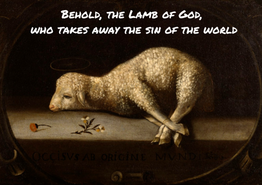
The Cross as Sacrifice:
The image of God as sacrifice has, over history, been a very popular idea. The New Testament uses the Old Testament image of the suffering servant (Isaiah 53:5) and applies it to Christ. This image is picked up by the writer of the letter to the Hebrews; “we have been made holy through the sacrifice of the body of Jesus Christ once for all” - Hebrews 10.10. - the Sacrifice of Christ was the perfect sacrifice.
In the Old Testament, the tradition was that regular sacrifice was needed to mend and maintain the relationship between God and Man - this was the focus of Temple worship and the Jewish day of Atonement (Yom Kippur). Jesus is seen as the ultimate sacrifice who fixes the relationship perfectly. John the Baptist says of Jesus: Behold the Lamb of God who takes away the sins of the world" (John 1.29)
As Augustine says in City of God:
By his death, which is indeed the one and most true sacrifice offered for us, he purged, abolished and extinguished whatever guilt there was by which the principalities and powers lawfully detained us to pay the penalty...He offered sacrifice for our sins. And where did he find that offering, the pure victim that he would offer? He offered himself, in that he could find no other.
Cross as Victory:
The New Testament frequently describes Jesus’ death as a victory over sin and Evil as represented by the Devil. In the Gospel of Mark Jesus describes himself as the “ransom for many” - somehow paying off evil, so restoring the relationship between God and Man.
Cross and forgiveness:
Some thinkers, such as Anselm, argued that Jesus’ death on the cross paid the penatly for our sin in order to right the relationship between God and Man. Jesus’ death is a “Satisfaction for sin” - a “satisfaction” was an idea used in the early church to describe the public actions - such as pilgrimage, giving to charity etc. - that people can undertake to show that they are grateful to God. Only Jesus could make total satisfaction as only he is without sin.
The Cross as moral example:
This final type, and probably the most popular idea in Christian thinking today, is the notion that Jesus’ death expresses God’s love for his people - Jesus by accepting a difficult and undeserved death shows the world the best way to act and so reunites us with God. This idea was around in the early Church but was brought to the fore by Peter Abelard in the twelfth century:
“The Son of God took our nature, and in it took upon himself to teach us by both word and example even to the point of death, thus binding us to himself through love.”
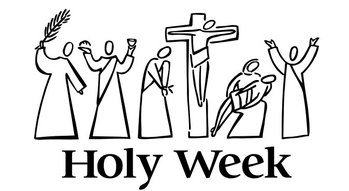
So this week, as you listen to the language of Maundy Thursday, Good Friday and Easter day, I hope you will think about these ideas of Atonement and question which one is the best model.
Which model for atonement do you think is the most coherent? Can you believe more than one or all of them at once? Or do you think that they all fail in some way?




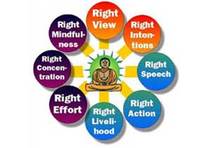

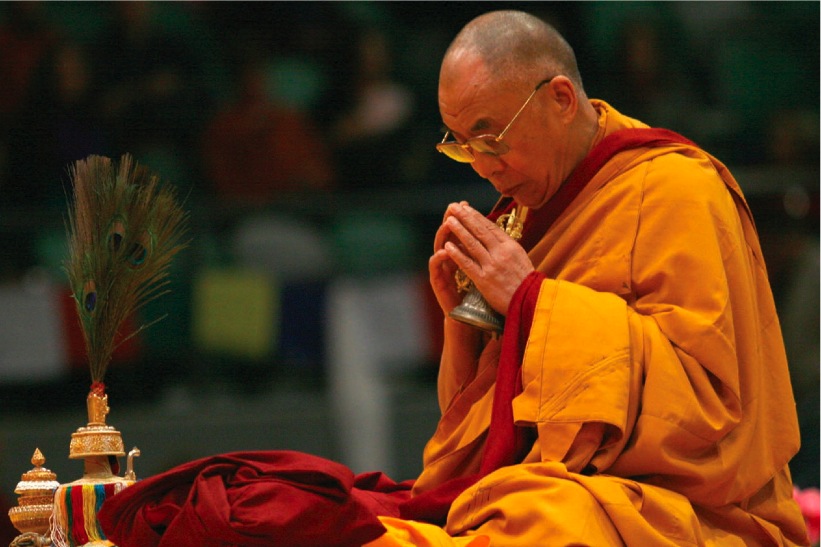
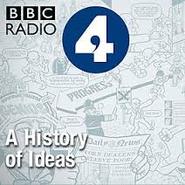

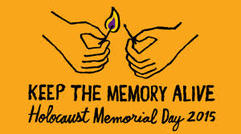


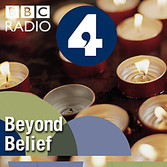
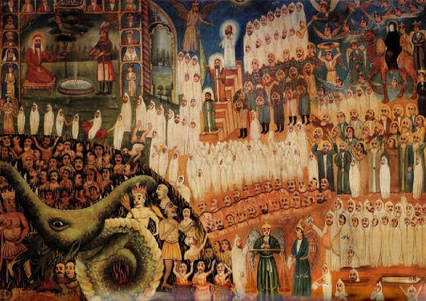


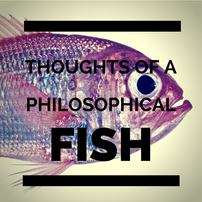

 RSS Feed
RSS Feed
